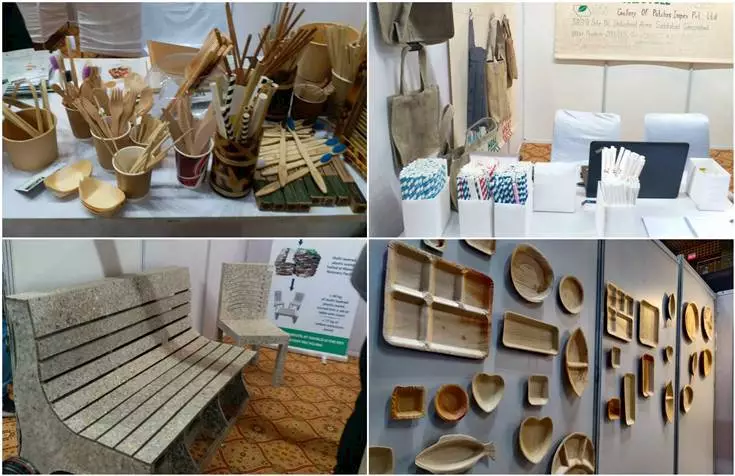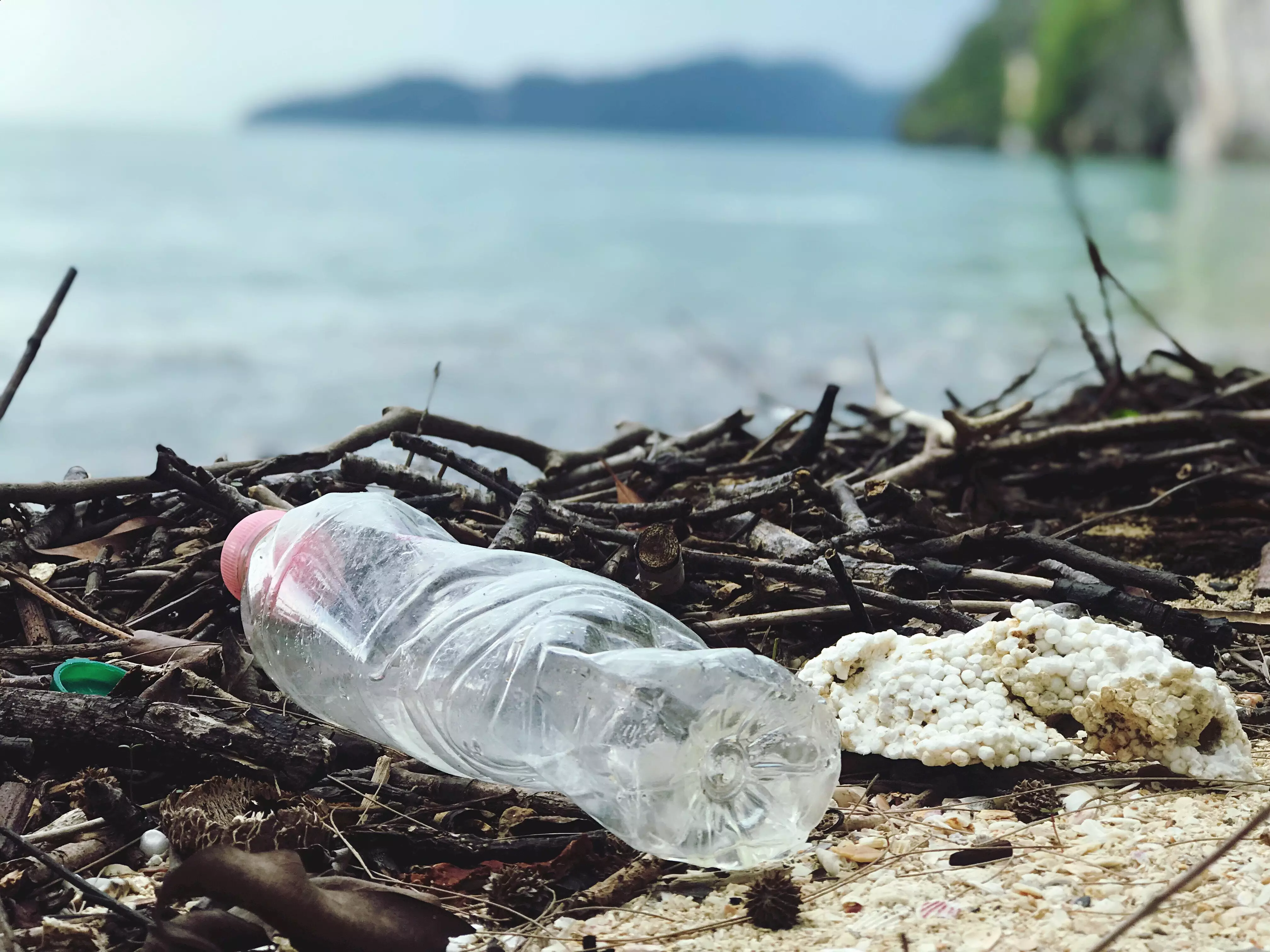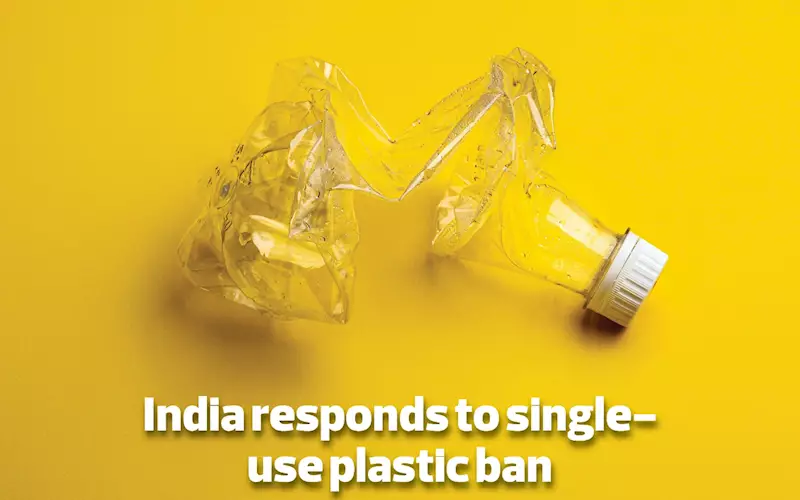India responds to single-use plastic ban
With 19 single-use plastic items banned from 1 July, manufacturers and civil society have been trying to find alternatives. Innumerable companies and industry associations as well as NGOs organised programmes during which they sensitised their audience about the single-use plastic ban plus distributed cloth bags.
11 Aug 2022 | By WhatPackaging? Team
During the last one month, WhatPackaging? noticed homemakers and school children carrying reusable shopping bags. Kirana stores were offering cloth bags to customers who did not have a shopping bag. These were the highlights of the first three days, as India began its tryst with banning single-use plastic.
India produces 380 million tonnes of plastic each year. Of this, single-use items such as packaging, cutlery and straws constitute 50% of the 380 million tonnes. At least 14 million tonnes of plastic find its way to the ocean each year. Unfortunately, it lacks an organised system for managing plastic waste, which leads to littering. Meanwhile, PepsiCo, Coca-Cola, Parle Agro, Dabur and Amul had lobbied for straws to be exempted from the ban.
This has been because of a plastic straw shortage. The plastic straws are attached to the juices and beverages packaging, which is sold in the country. As a result, beverage majors such as Dabur India and Parle Agro are attempting to replace plastic straws with imported paper versions.
As per information from the Recycling Beverage Cartons, an association of leading beverage makers, "India uses six billion straws annually. There is no domestic capacity for paper straws. The Indian manufacturers of biodegradable plastic are in a position to provide 8% of the total demand of the beverage companies."
Also, in a relief to consumers, the government of India has asked manufacturers and importers to increase the thickness to promote reuse. Other than the food and beverage and consumer goods companies, plastic manufacturers have stated that the plastic ban has not given them adequate time to prepare for the restrictions. More than 88,000 companies in India produce single-use plastic products. These companies employ about one million people.
Maharashtra leads the way
The Maharashtra government has become the first state in the country to ban single-use plastic. In real terms, this means, dishes, plates, cups, glasses, and more, with plastic coating and lamination are being sold as paper products.
Keeping in view the problems caused by the use of plastic in the state, the Maharashtra government has directed the officials to improve the plastic ban rules. A committee was formed to implement the plastic ban in the state. This committee had decided to amend the notification 2018 related to Maharashtra Plastics and Thermocol Products on 7 July.
Under the same decision, the state government, through a notification dated 15 July, imposed a ban on products with plastic coating and lamination. These include plastic-coated and laminated disposable dishes, cups, plates, glasses, fork, bowl and container (single-use products) made from paper or aluminium.
As readers of WhatPackaging? will recall, on 23 March 2018, the Maharashtra government imposed a ban on the manufacturing, use, sale, distribution and storage of plastic materials such as one-time-use bags, spoons, plates, PET and PETE bottles, and thermocol items. The government had then given three months’ time for disposal of the existing stock.
As per reports, 650 MSME units in Halol in Gujarat have shut due to the trickle-down effect of the single-use plastic ban. The Halol Small Scale Plastic Welfare Association has reached out to the state administration and have requested the Gujarat chief minister to allow 75-micron plastic products even after 31 December 2022, instead of changing the mandatory product requirement to 120-microns.

Swachh Bharat: Source segregation has shown conspicuous results in the country's sanitation drive
Meanwhile, 400 litres of water packets were destroyed during an inspection by the Zonal Commissioner VII and sanitation staff in Visakhapatnam. The team also created awareness about single-use plastic ban under the Swachh Survekshan project. Innumerable schools across the state organised drawing competitions for school students on the topic of Swachh Bharat, segregation of waste, and ban on single-use plastic.
Effectiveness of the ban
So far, the ban has been effective in pockets. The Pollution Control Board officials in various cities and towns across India have been carrying out enforcement drives. As per reports trickling in, the ban has had an effect on disposable plastics such as straws, cutlery, headphones, cigarette packs and plastic balloons. A large number of industry forums across India have upheld the government's ban.
Meanwhile, the official account of Swachh Bharat Mission (Urban) 2.0 issued a statement, "Source segregation has shown conspicuous results in the country's sanitation drive. Many cities have successfully implemented 100% source segregation with the help of citizens participation."
Saurabh Agarwal, senior director and general manager, LPM - South Asia, Avery Dennison, said, “The government’s decision to implement a ban on single-use plastic is a welcome move since it supports the green initiative of curbing pollution and health hazards and leads to environmental sustainability.
However, in order to make this decision a success, we would need to look at the replacement of plastic products with environmentally friendly substitutes and more viable alternatives. We would need to invest in research and development and look for more innovative technologies to develop alternative products.”
Celebrities such as Dia Mirza (who is also the goodwill ambassador at UNEP, UN Secretary Generals Advocate for SDGs, Wildlife Trust Of India) tweeted, "This single-use plastic (SUP) is ours now to implement. Let’s do our bit to ensure we refuse all SUPs."
SUP ban boosts health
Dr Ravindra Khaiwal, the public health, environmental health, air pollution - and working for better earth for all at PGIMER, Chandigarh as a professor said, "Banning single-use plastics impacts our health." He explained how plastics degrade into microplastics after entering the ecosystem. These microplastics act as a platform for the growth of pathogenic microorganisms. And we could do without pathogens.
He added, "Remember, plastic is not an issue, but how we use and dispose of is crucial." Dr Khaiwal felt, "India can play a leadership role in demonstrating the world to protect the environment and promote sustainability."
Meanwhile, the Central Pollution Control Board (CPCB) launched an app where you can scan and lodge a complaint about the single use plastic. For violators, there is a prescribed punishment, which is mandated by the
Environmental Ministry of India. The CPCB social media site also requested citizens to "stop the use of plastic sheets to cover invitation cards. Also, as a responsible citizen, let’s not accept the sweet boxes wrapped with plastic sheets". CPCB stated, "As per SUP ban, plastic earbuds are banned from 1 July 2022. Hence, let's start using wooden stick earbuds or any such alternatives."

Plastic Vikalp Mela exhibits alternatives to SUP in New Delhi during a three-day exhibition
An exhibition was arranged by the Department of Environment in Delhi NCT wherein they displayed alternatives to SUP such as corn starch, areca nut leaf, bagasse pulp, bamboo straws and more. Many NGOs and self-help groups participated in the "Say No to Single Use Plastic" exhibition and showcased paper products.
In addition, many awareness programmes were organised at various places in NCR by NGOs, student bodies and others. One programme - Plastic Heist - highlighted how one can get a cloth bag when you provide 10 plastic bags for recycling. These awareness drives have been running for months now and according to the Plastic Waste Management rule, all states and Union territories have conducted the commencement of the single-use plastic ban campaign from 1 July 2022.
Government outreach
The government is attempting to inform and encourage plastic processors to switch to sustainable goods. However, the key to implementing the SUP ban successfully is raising consumer and public awareness. The government must educate everyone by introducing new school courses, hosting seminars, inspiring the populace with different initiatives, and obstructing the supply chain for huge SUP product manufacturers and their raw materials, among other things.
The ministry of environment, forest and climate change stated in a press release that control rooms will be set up at the national and state level for effective enforcement of the ban on identified SUP items. The control rooms will monitor the unauthorised production, importation, stocking, distribution, sale, and use of items made of single-use plastic that are forbidden.
Meanwhile, CPCB Grievance Redressal App has been launched to empower citizens to help curb plastic menace. For wider public outreach, the Prakriti mascot was unveiled on 5 April.
In June, the India delegation led by Union Minister Dr Jitendra Singh attended the plenary session of the five-day UN Ocean Conference. During the session, Singh addressed the gathering in Lisbon, which saw governments of Kenya and Portugal being the co-hosts. He said that India is committed to protecting at least 30% of its lands, rivers and seas by 2030 in order to fulfil its 30x30 commitment.
This has been conveyed to the ministers, delegates, and representatives from more than 130 nations that we are at the UN summit to share with the world the PM's vision for the preservation and exploitation of the seas and their riches.

Following the UN Ocean Conference, India announced that it will begin a significant push to clean up the nation's 75 beaches. The 75-day awareness campaign "Swachh Sagar, Surakshit Sagar" was launched on 5 July and will culminate on 17 September in honour of International Coastal Cleanup Day. The initiative to clean up the shoreline will be the first of its kind and perhaps the longest in history.
Singh pointed out that India has undertaken a nationwide awareness campaign to clean the coastal areas, and this mission will soon become a mass movement.
Finding alternatives
There are various alternatives to single use plastics. The use of banned plastic bags will now perhaps reduce to some extent, but not immediately.
There has been talk of beeswax-coated cloth as an eco-friendly alternative to single-use plastic. The proponent of this substrate, Supriya Sahu IAS (and Addl Chief Secretary Environment Climate Change & Forests, Govt of Tamil Nadu) said that "no cling film, aluminium foil or plastic is needed to pack food. Plus, it can be easily used multiple times."
Likewise, Stora Enso is poised to begin pilot production of a new, 100% bio-based alternative to PET plastics that it believes could be a “game changer” in the packaging industry. The Finland-headquartered group believes the material could replace plastic bottles, aluminium cans and glass jars for a wide variety of uses.
In India, Central Institute of Petroleum Chemical Engineering (CIPET) and the Ministry of Small and Medium Enterprises of India will establish a capacity-building workshop to provide technical support for the manufacture of products to replace banned disposable plastics items.
As P Narendra of Pragati Offset shared with WhatPackaging? that over the next couple of years, the industry has to double its focus on eco-friendly packaging.
He said, "Plastic waste is one of the biggest contributors to pollution in the country. With the new norms in place, packaging board players should be ready with biodegradable packaging solutions and eco-friendly alternatives. The thing business owners should focus on is eco-friendly products. Plus monitoring of sustainability through cradle-to-grave tracking as well as better end user engagement.











 See All
See All